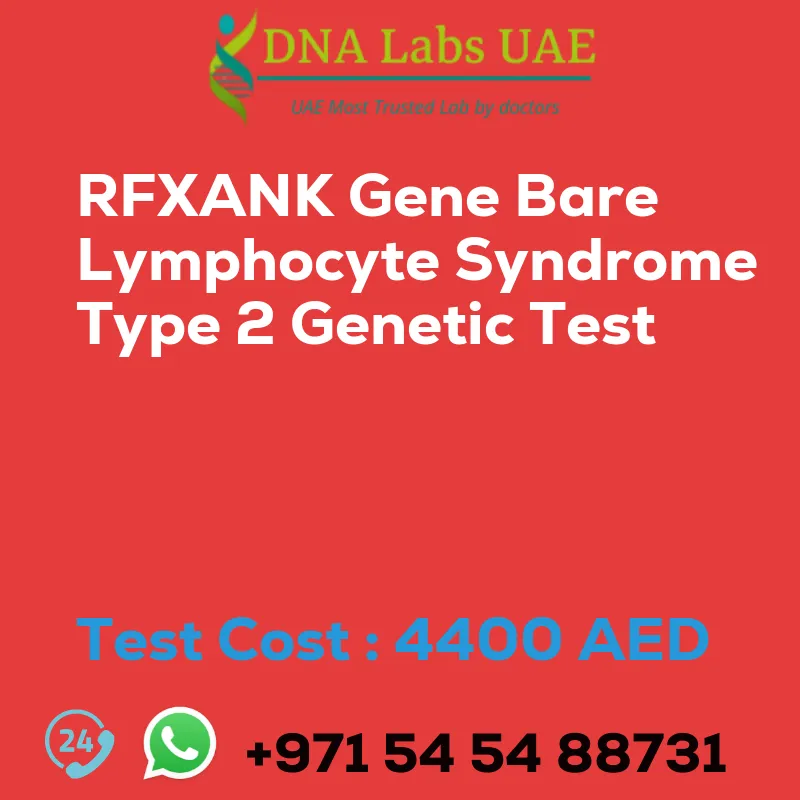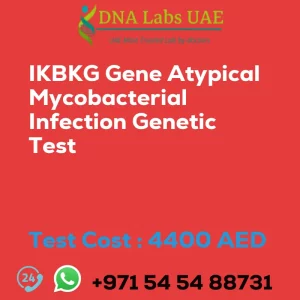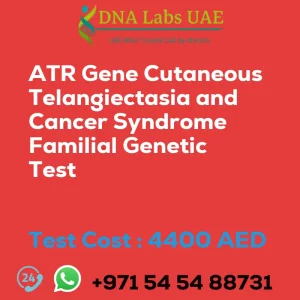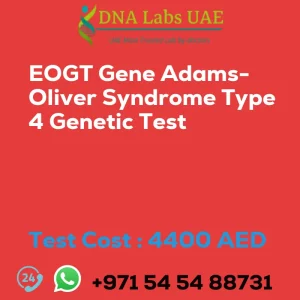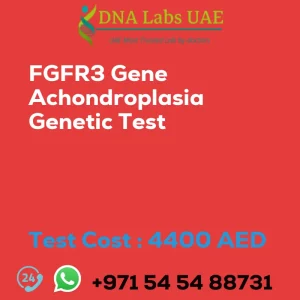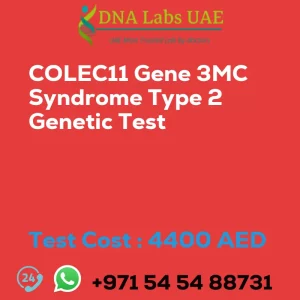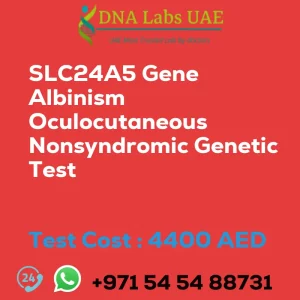RFXANK Gene Bare Lymphocyte Syndrome Type 2 Genetic Test
Cost: AED 4400.0
Introduction
The RFXANK gene is associated with a rare genetic disorder called Bare Lymphocyte Syndrome, type 2 (BLS2). BLS2 is an autosomal recessive disorder that affects the immune system, specifically the major histocompatibility complex (MHC) class II pathway. The MHC class II pathway is responsible for presenting antigens to T-cells, which play a crucial role in the immune response.
Test Components
- Price: AED 4400.0
- Sample Condition: Blood or Extracted DNA or One drop Blood on FTA Card
- Report Delivery: 3 to 4 Weeks
- Method: NGS Technology
- Test Type: Osteology Dermatology Immunology Disorders
- Doctor: Dermatologist
- Test Department: Genetics
Pre Test Information
Clinical History of Patient who is going for RFXANK Gene Bare lymphocyte syndrome, type 2 NGS Genetic DNA Test. A Genetic Counselling session to draw a pedigree chart of family members affected with RFXANK Gene Bare lymphocyte syndrome, type 2 NGS Genetic DNA Test gene RFXANK.
Test Details
NGS (Next-Generation Sequencing) genetic testing can be used to identify mutations in the RFXANK gene. This type of testing allows for the simultaneous analysis of multiple genes, providing a comprehensive assessment of the genetic variations associated with BLS2. NGS genetic testing involves the sequencing of DNA fragments using high-throughput sequencing technologies. The obtained sequencing data is then analyzed to identify any genetic variations or mutations in the RFXANK gene that may be causing BLS2.
Genetic testing for BLS2 can help in confirming a diagnosis, providing information about the specific genetic mutation, and guiding treatment decisions. It can also be used for carrier testing in families with a history of BLS2. It is important to consult with a healthcare professional or a genetic counselor to understand the benefits, limitations, and implications of genetic testing for BLS2 before undergoing the test.
| Test Name | RFXANK Gene Bare lymphocyte syndrome type 2 Genetic Test |
|---|---|
| Components | |
| Price | 4400.0 AED |
| Sample Condition | Blood or Extracted DNA or One drop Blood on FTA Card |
| Report Delivery | 3 to 4 Weeks |
| Method | NGS Technology |
| Test type | Osteology Dermatology Immunology Disorders |
| Doctor | Dermatologist |
| Test Department: | Genetics |
| Pre Test Information | Clinical History of Patient who is going for RFXANK Gene Bare lymphocyte syndrome, type 2 NGS Genetic DNA Test. A Genetic Counselling session to draw a pedigree chart of family members affected with RFXANK Gene Bare lymphocyte syndrome, type 2 NGS Genetic DNA Test gene RFXANK |
| Test Details |
The RFXANK gene is associated with a rare genetic disorder called Bare Lymphocyte Syndrome, type 2 (BLS2). BLS2 is an autosomal recessive disorder that affects the immune system, specifically the major histocompatibility complex (MHC) class II pathway. The MHC class II pathway is responsible for presenting antigens to T-cells, which play a crucial role in the immune response. In BLS2, mutations in the RFXANK gene disrupt the normal functioning of the MHC class II pathway, leading to impaired immune responses. NGS (Next-Generation Sequencing) genetic testing can be used to identify mutations in the RFXANK gene. This type of testing allows for the simultaneous analysis of multiple genes, providing a comprehensive assessment of the genetic variations associated with BLS2. NGS genetic testing involves the sequencing of DNA fragments using high-throughput sequencing technologies. The obtained sequencing data is then analyzed to identify any genetic variations or mutations in the RFXANK gene that may be causing BLS2. Genetic testing for BLS2 can help in confirming a diagnosis, providing information about the specific genetic mutation, and guiding treatment decisions. It can also be used for carrier testing in families with a history of BLS2. It is important to consult with a healthcare professional or a genetic counselor to understand the benefits, limitations, and implications of genetic testing for BLS2 before undergoing the test. |

